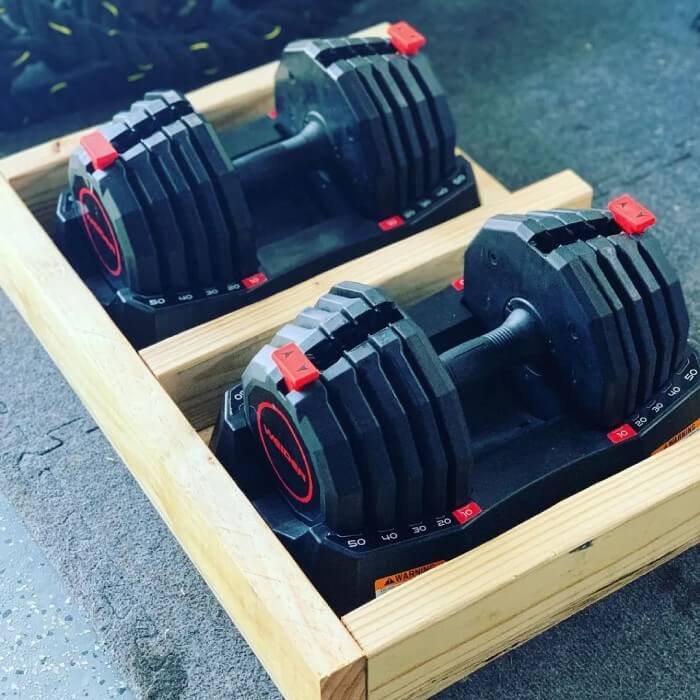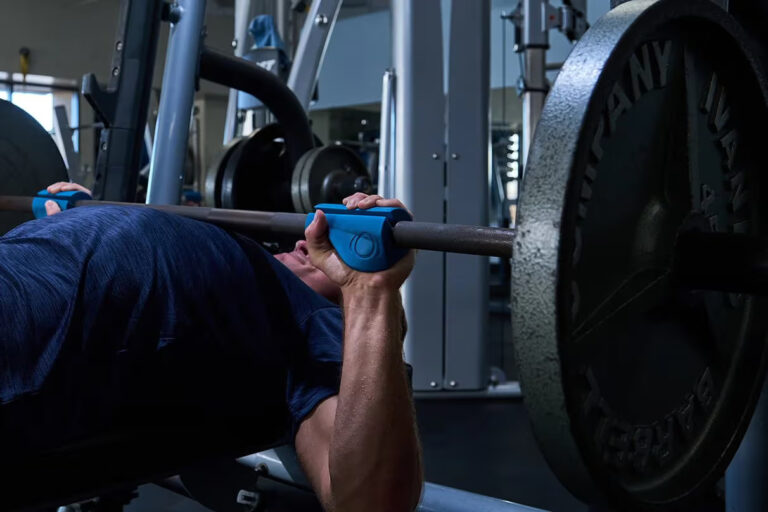Sole F80 vs NordicTrack 1750 – A Detailed Comparison
The Sole F80 vs NordicTrack 1750 treadmills are two popular cardio equipment choices among home gym users. They both offer folding designs, shock-absorbing running decks, and integrated LCD screens at the front console. They also come at similar price points which makes choosing between them a hard decision.
I’ve taken out the hard work for you and broken down the NordicTrack vs Sole treadmills in detail, looking at the key similarities and differences. If you’re wondering which one you should purchase then keep reading.
Sole F80 vs NordicTrack 1750 – Both treadmills have compact frame designs, folding mechanisms, and similar price points. The main difference between the Sole F80 treadmill vs NordicTrack commercial 1750 is the front console design and LCD monitor functionality.
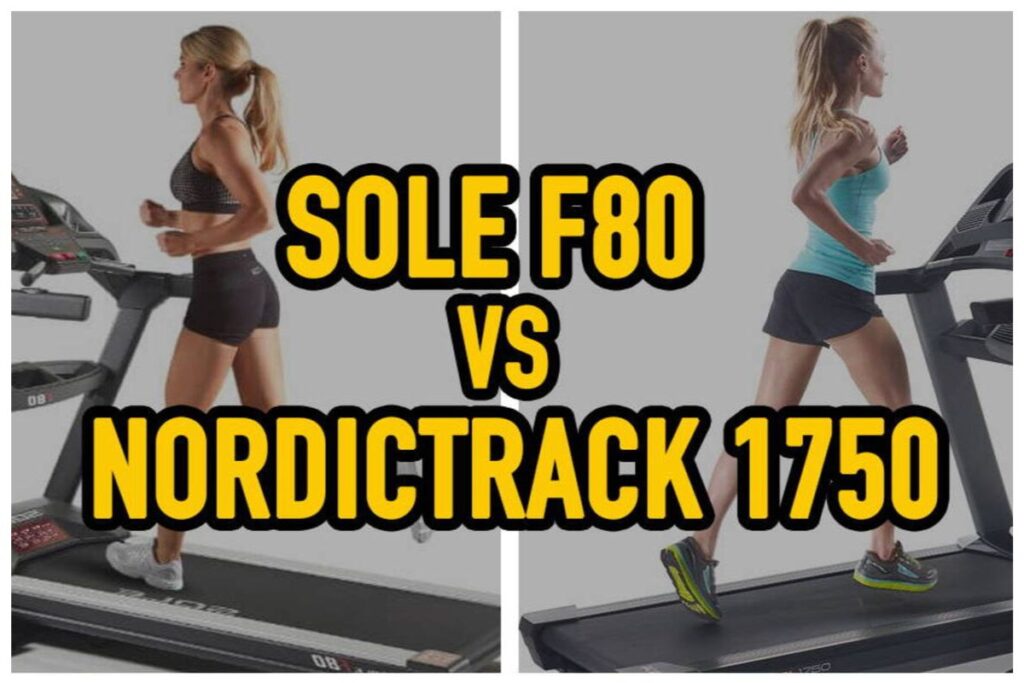
Sole F80 Treadmill
Sole Fitness aims to provide durable fitness equipment that performs well at any level. Their commercial-grade equipment is available at an affordable price point, including their range of space-saving treadmills.
- Speed Range: 0-12 mph
- Max Incline: 15%
- Folding: Yes
- Weight Limit: 375 lbs
- Item Weight: 278 lbs
- Product Dimensions: 82″ L x 37″ W x 57″ H
- Display: 9″ LCD Monitor
- Running Surface: 60″ L x 20″ W
- Warranty: Lifetime Frame Warranty, 5 Year Parts, 2 Year Labor
- Workout Programs: 10 Preset Programs
- Additional Features: Cushion Flex Whisper Desk, Tablet Holder, USB Port
Sole Fitness offers a wide range of treadmill models, with the F80 being its mid-range choice. It’s built for running, with commercial-grade components that are cleverly incorporated into a space-saving frame design.
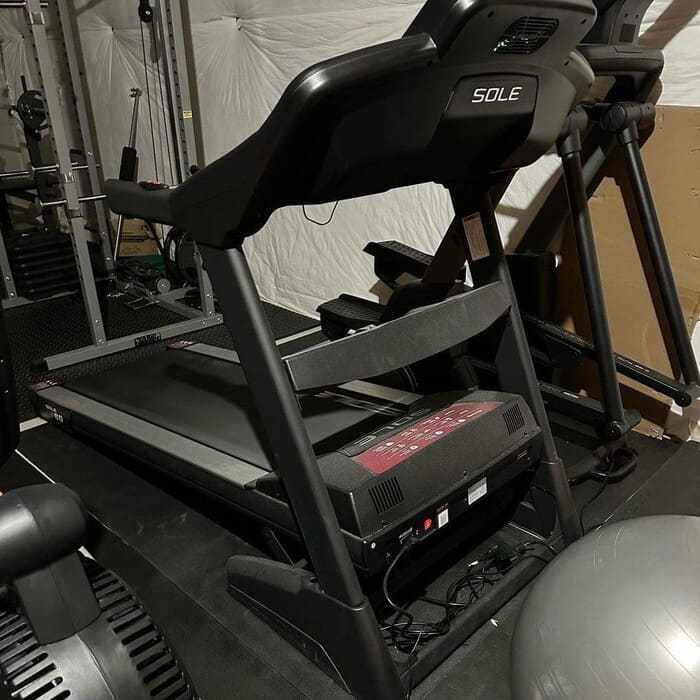
On first impression, the F80 looks well-designed, with multiple storage compartments at the front console and pulse sensor rails in front of the desk located at hip height.
The LCD screen is centrally located with multiple quick-press buttons around it.
Bluetooth speakers sit on either side, with a handy tablet holder located above. Safety arms extend out of the console, with integrated handrail controls to make adjusting both your speed and incline easy.
The Sole F80 has a STUDIO app with on-demand classes and a manual mode if you prefer to do your own workouts. The large running deck folds and unfolds using a hydraulic assist mechanism that activates when you pull the yellow handle or bar at the bottom.
Sole F80 Pros And Cons
Positives:
Could be better:
Who Should Use the F80?
Suitable for:
- Gymgoers who like lots of storage options on their cardio equipment
- Larger athletes who need a durable treadmill
- People who want a space-saving treadmill design that folds away when not in use
Not suitable for:
- People who want a touchscreen at the front console
- Gymgoers who want a decline setting on their treadmill
NordicTrack 1750 Treadmill
Founded in 1975, NordicTrack aims to make commercial-grade home cardio equipment featuring innovative folding designs. They offer a great range of treadmills at affordable price points for everyone to enjoy from the comfort of their own home. They include a free 30-day iFit membership with each purchase.
- Speed Range: 0-12 mph
- Max Incline: 15%
- Folding: Yes
- Weight Limit: 300 lbs
- Item Weight: 340 lbs
- Product Dimensions: 80″ L x 38″ W x 65″ H
- Display: 14″ HD Touchscreen
- Running Surface: 60″ L x 20 W
- Warranty: 10 Year Frame, 2 Year Parts, 1 Year Labor
- Workout Programs: 30-day iFit Trial
- Additional Features: ActivePulse Technology, AutoAdjust Technology
The NordicTrack 1750 is one of the brand’s most popular models with a durable frame, compact design, and integrated running features that provide an immersive running experience.
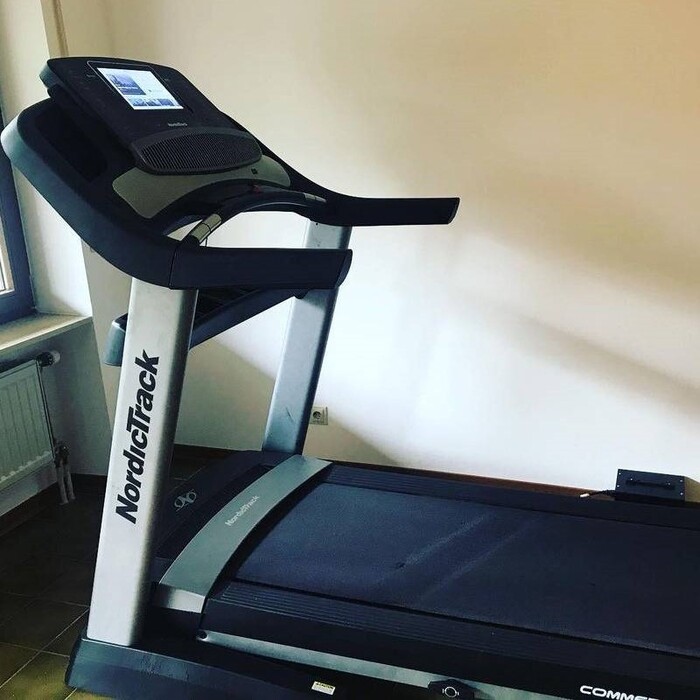
The 1750 model features multiple storage compartments around the front console, safety side rails, and a large movable touchscreen in the middle.
The quick touch controls are located on either side of the LCD screen, with the large Bluetooth speaker underneath. The large running deck offers a decline setting and uses NordicTrack’s patented deck cushioning technology. The easy assist lift mechanism helps the deck to fold and unfold safely when you want to store the 1750 model away.
What makes the 1750 model stand out is the iFit compatibility, giving you a fully immersive trainer-led running experience. NordicTrack includes a 30-day membership trial with each purchase.
NordicTrack 1750 Pros and Cons
Positives:
Could be better:
Who Should Use the NordicTrack 1750?
Suitable for:
- Gymgoers who want on-demand running guidance from elite-level trainers
- Athletes who prefer a bigger LCD screen at the front console
- People who want a space-saving treadmill design that folds away when not in use
- Athletes who want a decline setting when running
- Not suitable for:
Not suitable for:
- People who don’t want to pay extra for an iFit membership package
Sole F80 vs NordicTrack 1750 Comparison
Deciding whether to purchase the Sole or NordicTrack treadmill can be a hard choice. I’ve broken down the key similarities and differences into the main treadmill components and features below:
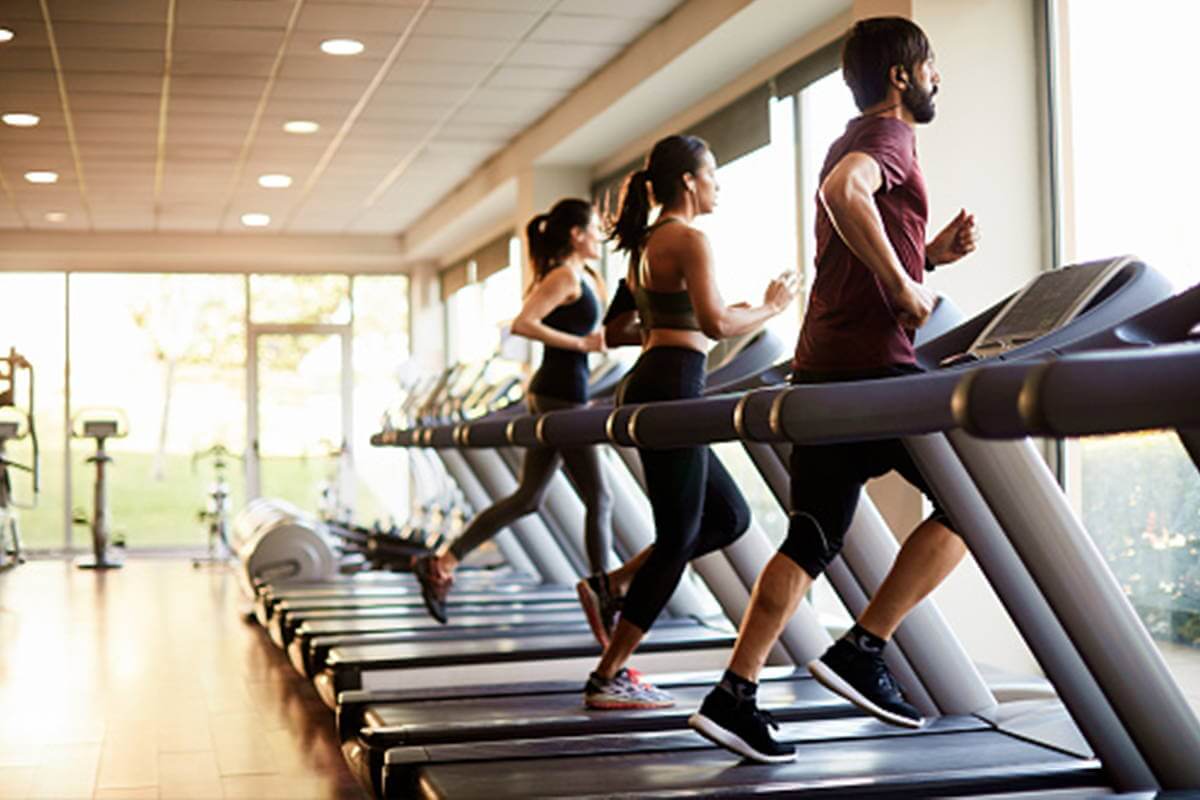
1. Design
Both treadmills are constructed from durable steel frames and uprights. The NordicTrack 1750 uses a sleek black color scheme whilst the Sole F80 uses a mix of silver, black, and orange throughout the frame and console.
The Sole F80 features safety rails that extend out horizontally from the console. They include convenient speed and incline adjustment buttons that allow you to change them without having to adjust your running position much. The NordicTrack 1750 has more of an integrated L-shaped safety rail design, with the rails built into a one-piece construction that extends out from the console.
In front of the running deck, the F80 has pulse sensor grips allowing you to monitor your heart rate and therefore running zone during your workout. This is a feature that isn’t included on the NordicTrack 1750 treadmill.
Both treadmills feature multiple storage options, with a pocket located at either side of the console on the NordicTrack 1750. The F80 has large compartments at either side of the LCD screen and a storage rail underneath the console just in front of the running deck. In terms of overall storage, the F80 is the clear winner with more compartments located on the treadmill.
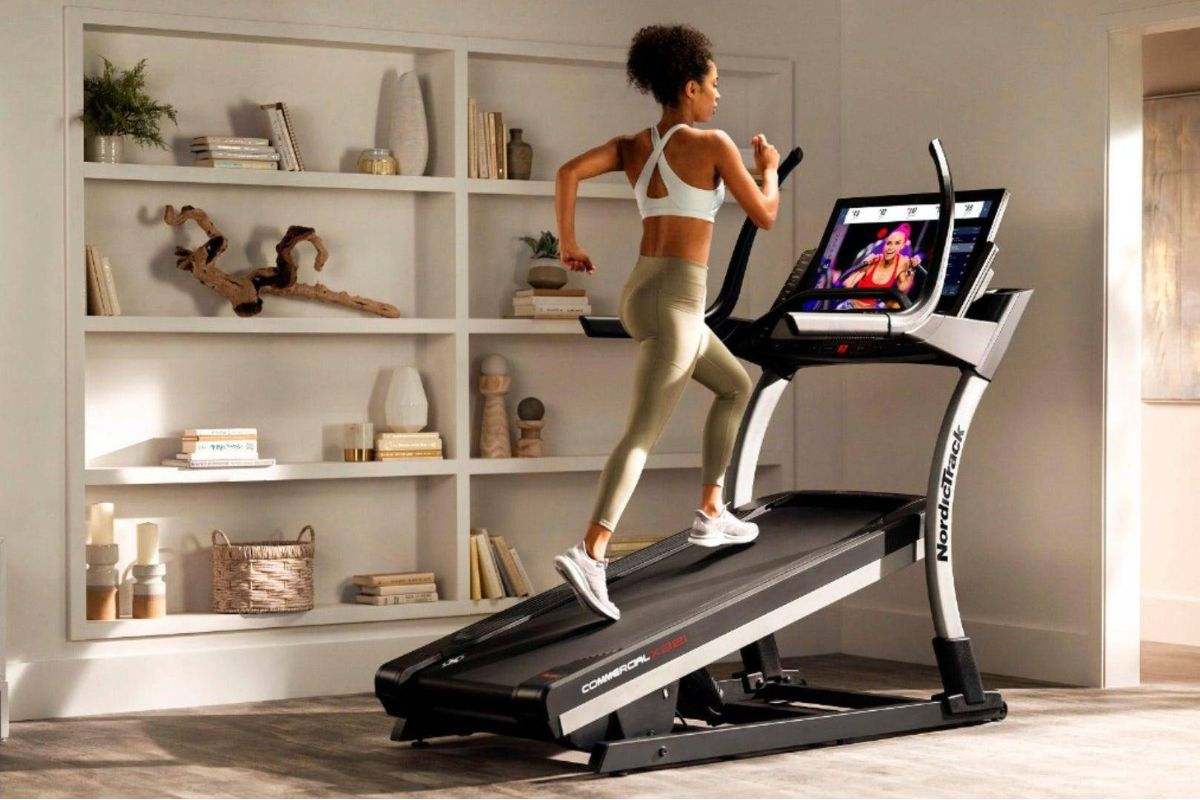
2. Construction and Footprint
Both treadmills offer space-saving designs that make them great options for storing in smaller home gym spaces. Both treadmills have similar footprints, with the F80 measuring 82″ L x 37″ W x 57″ H and NordicTrack 1750 measuring 80″ L x 38″ W x 65″ H. The 1750 is 8″ higher than the F80 which might be something to bare in mind if you have a narrow home gym ceiling. Both treadmills offer compact frame designs, with no clear winner here.
With both treadmills constructed from solid steel, they offer large weight capacities that should be enough for most normal at-home use. The F80 treadmill can support a max user weight of 375 lbs whilst the 1750 supports up to 300 lbs. With this, the F80 is the better treadmill option if you’re a larger user.
The side rail handles on the NordicTrack 1750 have a textured coating that keeps your hands from slipping during more intense running workouts. The singular front horizontal handle on the NordicTrack 1750 is easier to grip compared to the diagonal pulse sensors on the F80. In terms of comfort, the 1750 treadmill comes out slightly on top with textured handrails and a horizontal front bar.
3. Monitor Functionality
One of the most obvious differences between the treadmills is the difference in monitor size. The Sole F80 has a 9″ LCD monitor with a backlit display whilst the NordicTrack 1750 uses a 14″ touchscreen display that can tilt and pivot from side to side.
The F80 has plenty of buttons located around the screen allowing easy navigation between workout programs, fan settings, and the on-screen display. The screen features a simple design that displays different workout metrics with no interactive video feature included.
The NordicTrack 1750 has a much sleeker monitor design than the F80, with a more streamlined appearance that’s easier to navigate. The quick-touch buttons are conveniently organized on either side of the touchscreen, with incline settings on the left and speed settings on the right. Under the touchscreen, NordicTrack has included a horizontal rack with more quick-touch incline and speed buttons, and the cooling fan above.
This is where the NordicTrack 1750 model shines, and is the clear winner in terms of the monitor layout and console display.
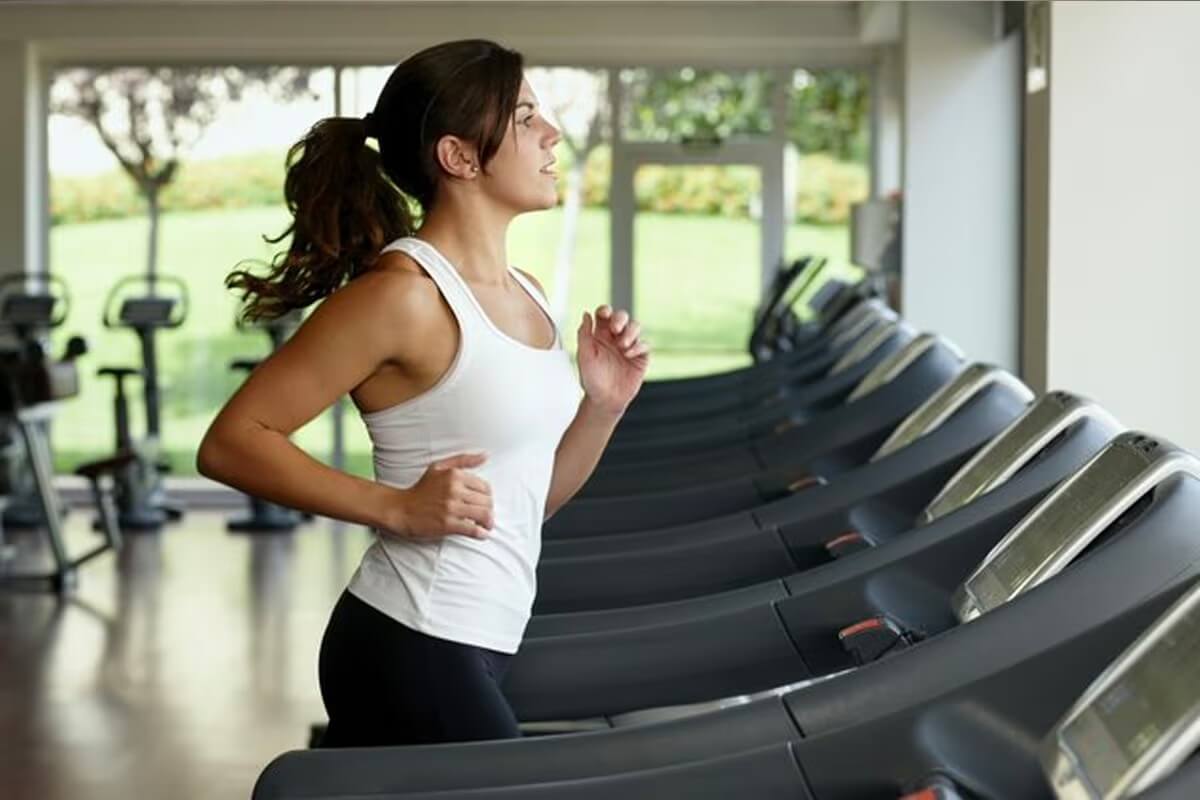
4. Running Experience
Both treadmills offer good overall running experiences, with differences in program options setting them apart. Both treadmills use a 3.5 HP motor, with 0-12 mph speed options and up to 15% incline settings. Both motors operate quietly with little trouble over longer running distances.
A stand-out feature of the NordicTrack 1750 is the option to decline the deck to -3%, allowing you to isolate your anterior muscles more when walking or running.
Both treadmills offer 60″ L x 22″ W running decks, allowing plenty of room to walk or run around even if you’re a taller user. Both treadmill decks use their patented cushioning software underneath, with the NordicTrack cushioning a little softer.
The F80 uses simple programming with ten pre-set offline programs to choose from. The two heart rate programs use the included chest strap, allowing you to train in different heart rate zones. Sole uses the STUDIO app as an optional workout subscription, with over 3000 on-demand classes led by professional trainers. However, you need your own electronic device to follow along on the app.
The NordicTrack 1750 uses iFit, offering a fully immersive running experience that integrates into the treadmill controls. The iFit app offers over 16,000 live and on-demand classes, with an auto-adjust feature where the treadmill adjusts automatically based on trainer feedback. You also have the option to use the manual mode, with the free iFit version offering some access to certain classes and workout programs. The NordicTrack 1750 treadmill comes with a free 1-month iFit subscription for you to try before purchasing.
If you prefer a simple monitor design without the extra bells and whistles, the F80 is the better option. However, the NordicTrack 1750 really excels at offering a fully immersive workout experience, with the auto-adjust feature making the NordicTrack 1750 model the clear winner in terms of monitor functionality.
5. Portability
Both treadmills offer excellent portability, with convenient hydraulic assist safety mechanisms. This allows the decks to be slowly lowered down and up without you having to take any of the weight. It also protects your home gym floor from any potential damage if the deck were to lower out of control.
Both treadmills have a convenient grab bar that’s located at the end of the running decks. To fold them up, use the fold knob located at the sides of the consoles. The release button on the F80 is nicely located higher up on the side of the deck whilst the 1750 has a foot release bar at the bottom.
Transportation wheels are included on both models, with the F80 using four wheels compared to the two used on the 1750. This makes the F80 easier to fold up and move, making it a slight winner in terms of portability.
6. Features
The Sole F80 treadmill has a number of added features including a USB port for device charging, Bluetooth speakers, a tablet holder above the console, and handrail controls.
The NordicTrack 1750 treadmill has a pivoting touchscreen, Bluetooth speakers, and an integrated tablet holder. If you take the iFit program out of the picture, I think the F80 wins in terms of user-friendly features. With the iFit program included as a feature add-on, the 1750 is again the winner.
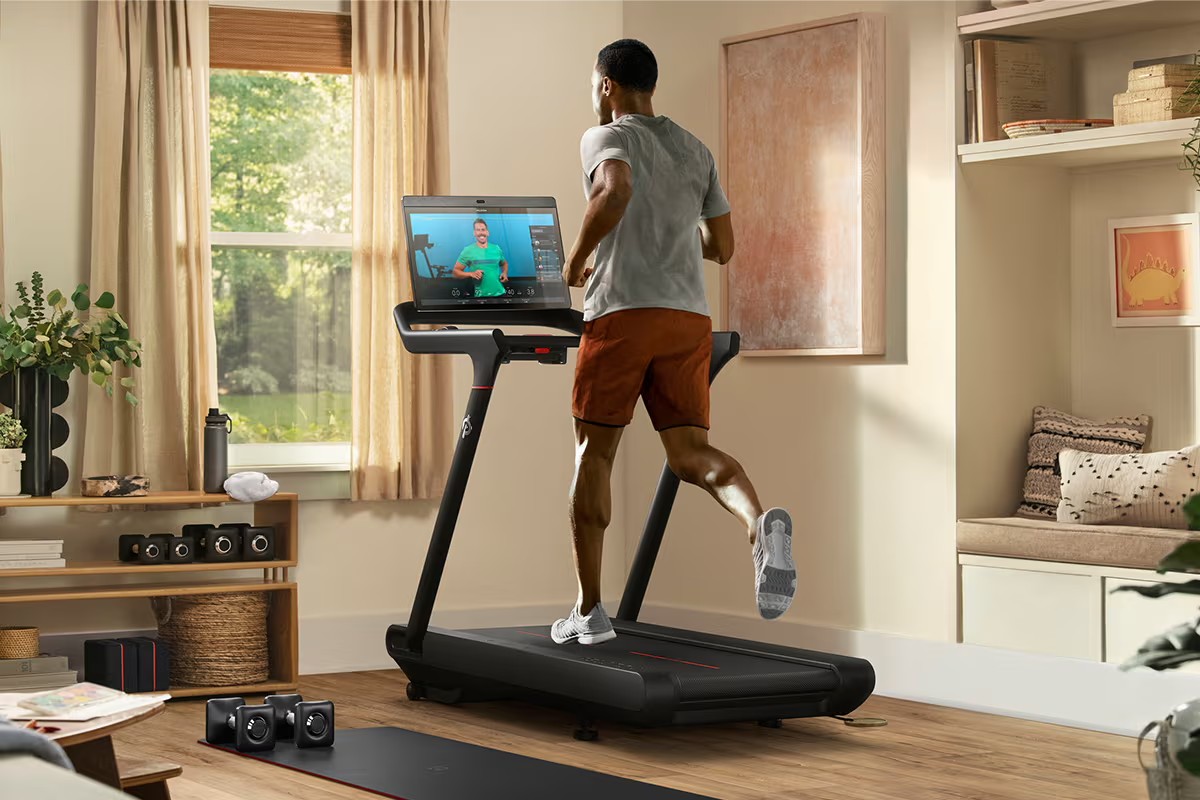
7. Warranty And Assembly
Both treadmills require two people to assemble them safely, with instructions provided for each model.
Sole Fitness offers a fantastic lifetime warranty on the F80 frame, giving you peace of mind that they back their product when you purchase one. They also include a 5-year parts warranty and a 2-year labor warranty, also bigger than comparable brand choices.
NordicTrack offers a good 10-year frame warranty for their 1750 model, with a 2-year part warranty and a 1-year labor warranty. This is above industry standard but compared to the F80, is far below making the Sole F80 the stand-out winner for warranty.
Sole F80 vs NordicTrack 1750 – Summary
When comparing the Sole F80 and NordicTrack 1750 treadmills overall, the better treadmill depends on the running experience you’re looking for and the extra features you need. Both treadmill models are built from compact steel frames with space-saving designs and unique folding mechanisms that use hydraulic assist mechanisms for added safety.
Both have built-in safety rails, handy transport wheels, and large running decks that give you plenty of space to exercise even if you are taller or have a longer stride length. Both treadmills operate from 0-10 mph using 3.5 HP motors and offer incline settings up to 15%.
The Sole F80 treadmill has a bigger variety of storage options, heart rate sensor handles at the front of the deck, and a slightly larger weight limit compared to the NordicTrack 1750 model. It has 10 pre-set workout programs to choose from and a STUDIO app that can be used for on-demand workouts led by professional trainers. It does however require a device, with no touchscreen functionality or interactive display.
The NordicTrack 1750 treadmill has a well-organized front console, with a large 14″ touchscreen and quick-touch buttons on either side. The bottom hand goes horizontally to the running deck, with the safety rails providing a textured surface to grip onto when needed. The 1750 model has a -3% decline function and offers a much more interactive trainer-led running experience. The auto adjust feature allows the trainer to change your incline and speed settings via the iFit app, included as a 30-day trial with each purchase.
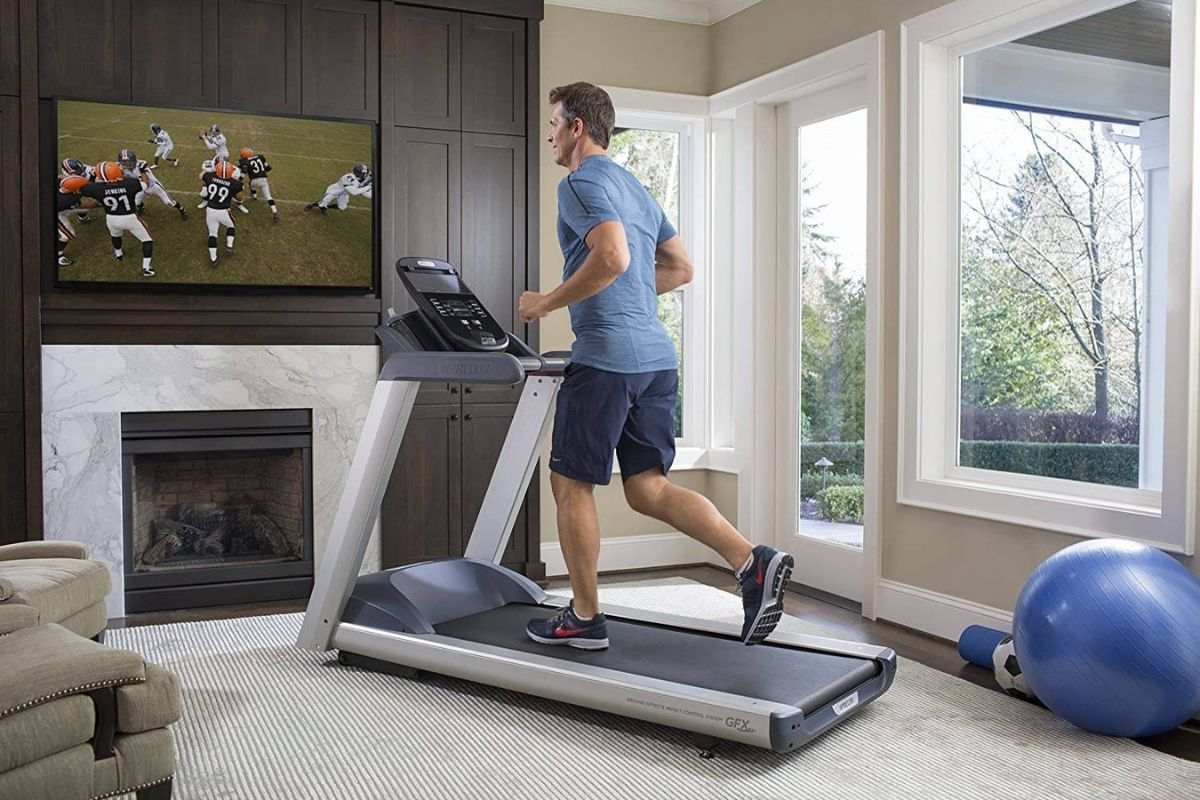
FAQ
Is Nordictrack a Better Brand Than Sole?
Both brands manufacture space-saving treadmills that offer great value for money if you’re looking for affordable at-home cardio equipment. Compared to Sole, NordicTrack offers a more interactive workout experience with the integrated iFit app.
Who Is Nordictrack’s Main Competitor?
NordicTrack’s main competitor is ProForm. Both brands offer very similar treadmill designs and interactive console displays.
Is the Sole F80 Treadmill Commercial Grade?
The Sole F80 treadmill features a commercial-grade design using commercial-grade construction materials. These include a large cushioned running deck, durable steel frame, and powerful motor.
Conclusion
Both treadmills make great additions to your home gym. The main differences are in the front console and deck functionality, with the NordicTrack 1750 model offering a -3% decline function and much more interactive running experience. The Sole F80 has a simpler display but offers many more storage options and heart rate pulse handles at the front.
Have you used the F80 or 1750 treadmills before? What was your running experience like? Maybe you would like to add some more information? Let me know down below!
Also read:
- Best Proform Treadmill
- Best Low Impact Treadmill
- Peloton or Nordictrack Treadmill
- Best Incline Treadmill
- How Heavy Are Treadmills
- Best Treadmill for Walking at Home
- Best Manual Treadmill
- Best Nordictrack Home Treadmill
References:
- Is the Treadmill Good for Losing Weight? // LiveScience: https://www.livescience.com/is-the-treadmill-good-for-losing-weight
- What Muscles Does Treadmill Work? // HomeTrainingHero: https://www.hometraininghero.com/what-muscles-does-treadmill-work/
- Cardiovascular Effects of Treadmill Exercise // ResearchGate: https://www.researchgate.net/publication/51048753
- Is Running on a Treadmill Bad? // LiveStrong: https://www.livestrong.com/article/296197-is-running-on-a-treadmill-bad/
- What Is the Average Heart Rate While Running? // LiveStrong: https://www.livestrong.com/article/130246-average-heart-rate-running/
Why Trust Us?
With over 20 years in Olympic Weightlifting, our team does its best to provide the audience with ultimate support and meet the needs and requirements of advanced athletes and professional lifters, as well as people who strive to open new opportunities and develop their physical capabilities with us.
All products we select are primarily approved and tested by the Olympic Weightlifting Champion Oleksii Torokhtiy. Under his guidance, we provide honest and reasonable assessments of the products we review by checking their characteristics, packaging, design, comfort and durability features, and general product rating. We select products from only high-quality and trusted sports brands, thus vouching for their quality.
The product testing process is described in more detail here
Author: Ihor Shymechko
Pro Olympic Weightlifter, Coach
Best Results: Snatch – 208 kg,
C&J – 240 kg
Ihor has been a professional weightlifter since 1996, boasting over two decades of competition experience. His notable achievements include clinching the European Championship in 2009 and securing a silver medal in the 105kg division at the Senior World Championships in 2011. Ihor represented his country in the 2008, 2012, and 2016 Summer Olympics. After retiring from competitive weightlifting, he transitioned to coaching, leveraging his vast experience to guide athletes who now compete on both national and international stages.

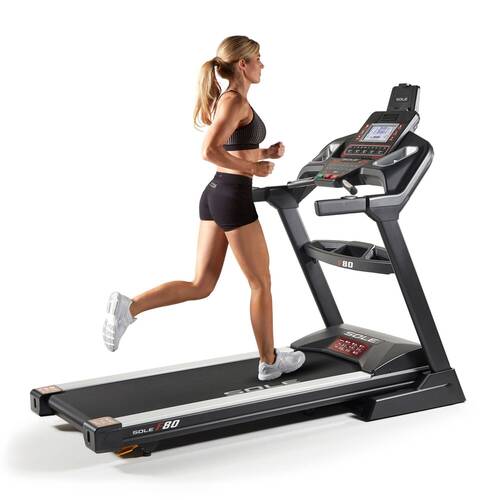
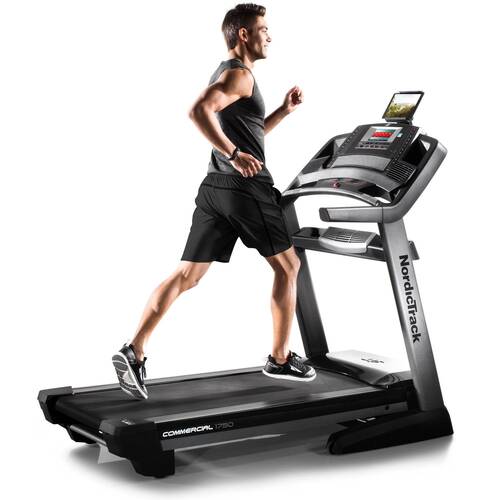

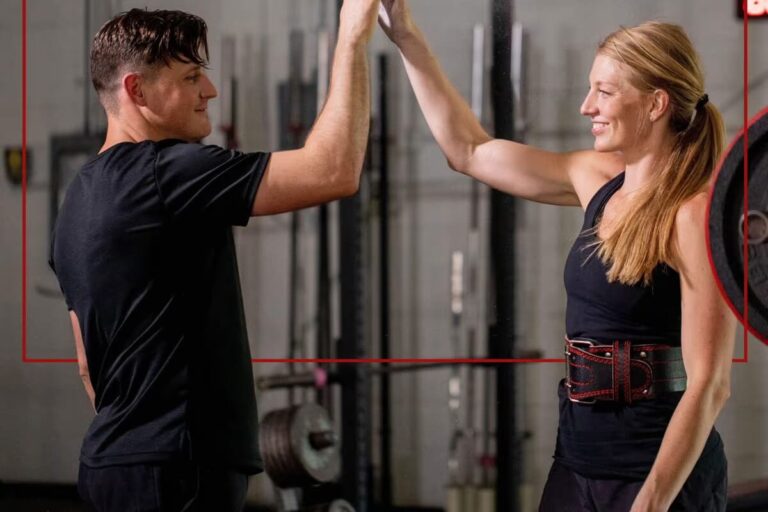
![Tuff Wrist Wraps Review ([Year])](https://torwod.com/wp-content/uploads/2024/02/training-wrist-wraps-Tuff-Wrist-Wraps-Review-768x512.jpg)
